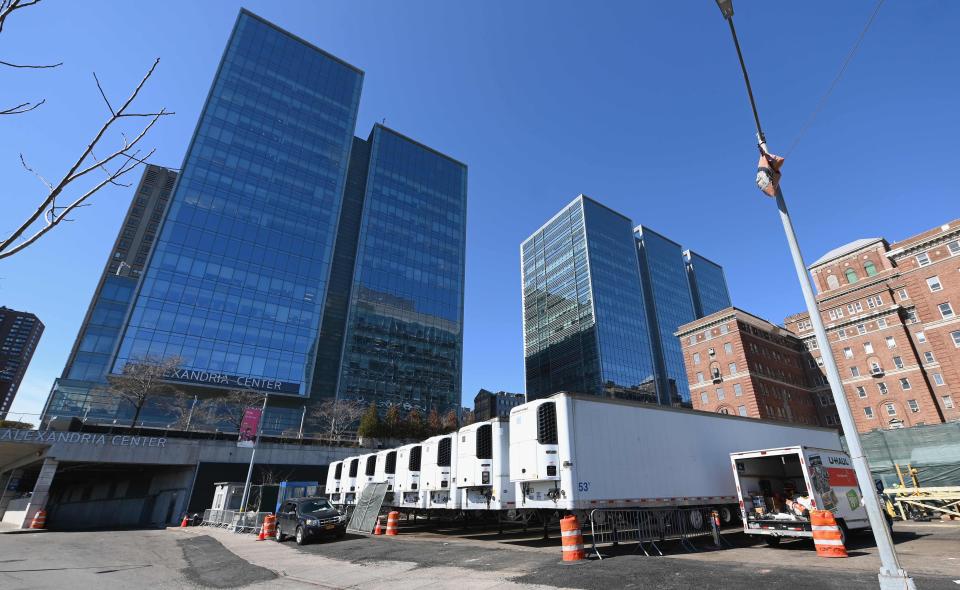Refrigerated trucks used as morgues during coronavirus pandemic can transport food again, FDA says
Refrigerated trucks that were used to preserve human remains during the coronavirus pandemic may be used to transport food again after being properly cleaned and sanitized, according to recommendations published by the U.S. Food and Drug Administration this week.
In areas particularly hard hit by the virus, including New York City, refrigeration trucks have served as temporary morgues. But as social distancing measures have helped curb the spread of the virus, questions have arisen about the future of those trucks once they are no longer needed.
The FDA addressed those questions in non-binding recommendations issued May 12. The document is considered a series of recommendations rather than a legally enforceable order, the FDA says. The guidance notes other agencies may have relevant regulations.
"Before returning to service to transport or store human or animal food, refrigerated food transport vehicles and refrigerated food storage units used to hold human remains during the COVID-19 pandemic should be thoroughly cleaned and disinfected," the document says.

The disinfectants used should be EPA-approved and workers cleaning the trucks should wear protective gear, according to the document.
Special recommendations are given in cases where there is "evidence that interior surfaces were in direct contact with blood or bodily fluids."
The use of refrigerated trailers, known as reefers, is a common contingency plan in the event of natural disasters or mass fatality events like Hurricane Katrina or 9/11. But rarely, if ever, have they been deployed on such a massive scale — and in such a public way.
Typically, the bodies of those who die in hospitals go straight to funeral homes, where they are prepared for memorial services. But as COVID-19 deaths mounted and hospital morgues filled, medical examiners sought additional capacity.
Medical examiners interviewed by the USA TODAY Network earlier this year said the deceased are treated respectfully even if their bodies are stored in a refrigerated trailer or warehouse for a short time. In those cases, the bodies are placed face up inside a waterproof bag made of thick plastic with nylon straps and reinforced webbing.
Each individual’s hospital bracelet or government-issued ID is generally affixed to the body bag, if possible. Otherwise, bags are marked with the individual’s identifying information using a paint pen.
The refrigerated unit rental business typically caters to institutions like schools, hospitals and nursing homes that need additional refrigerator space during renovation projects, or large-scale festivals and trade shows with on-site food service.
Refrigerated units also keep seeds and floral arrangements fresh. They protect pharmaceuticals and sensitive electronics. And, most commonly, they store and transport food.
Strict protocols are already in place for food transportation, Mike Smith, co-owner of Smith Trucking, a southwest Minnesota-based shipper, noted. Although the realities of shipping meat, for instance, involve details most people would prefer not to ponder.
“With fresh-cut products, there can be leakage,” Smith said. “That’s not uncommon.”
After trailers are unloaded, they’re soaked with a sanitizer soap solution, pressure washed with 185-degree water and inspected before reloading, he said.
Contributing: Suzanne Hirt and Jessica Priest
This article originally appeared on USA TODAY: Coronavirus temporary morgues: Trucks can haul food again, FDA says

